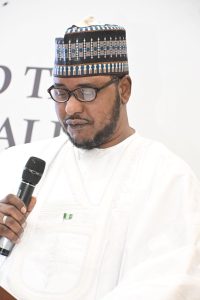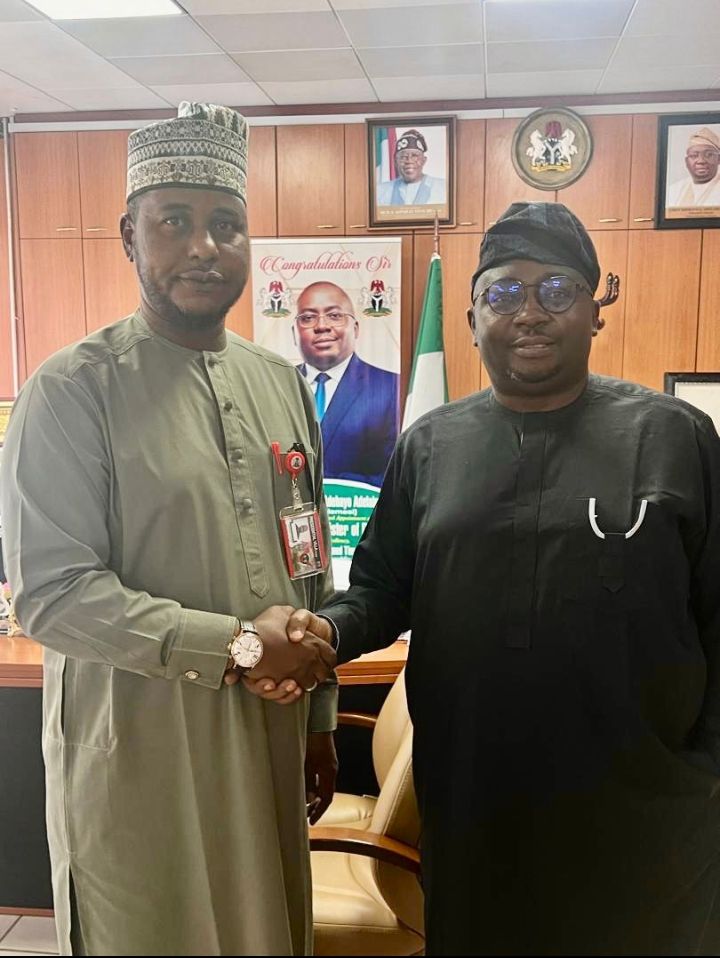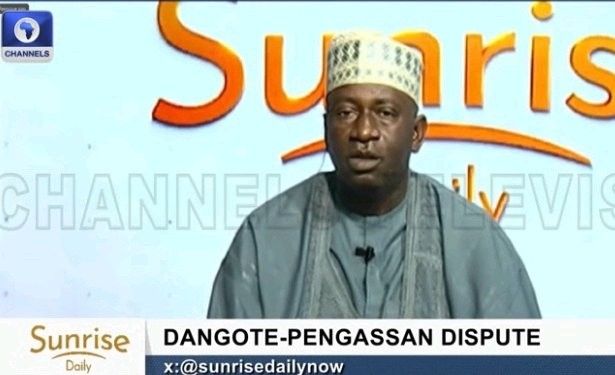
Nigeria’s Power Crisis: SSAP Abdullahi Yakasai Meets with Power Minister Amid Latest Northern Blackout.
Abdullahi Yakasai, Senior Special Assistant to President Bola Tinubu on Community Engagement for the North-West, met with Honourable Minister of Power Adebayo Adelabu to address the recent power outage sweeping through Northern Nigeria. The blackout has affected millions across the region, following what has been a series of grid collapses impacting businesses, schools, hospitals, and daily life. The causes, according to Minister Adelabu, stem from both technical failures and intentional vandalism of critical sub-stations—a recurring issue that has severely impacted the national power grid this year.
During the meeting, Mr. Yakasai reported that the President has been fully briefed on the situation and expressed concern over the frequent grid failures that have plagued Nigeria in recent months. Minister Adelabu detailed the recent events, explaining that acts of sabotage on sub-stations across the North exacerbated a technically complex situation, resulting in a complete blackout that has left many without power. Despite ongoing efforts, the Minister acknowledged the strain this has placed on the already fragile infrastructure, especially given that 2024 has seen an unprecedented number of grid collapses.
The recurring nature of these power outages has painted a grim picture for Nigerian businesses. Industries, from manufacturing to retail, depend heavily on electricity to operate, and the uncertainty surrounding power stability has escalated costs, forcing many to rely on alternative sources such as diesel generators. The cost of operating on generators is prohibitive, eating into profits and raising prices for consumers, which, in turn, hinders economic growth and discourages investment.
READ: Nigerian Billionaire Aliko Dangote Gains $28 Billion from Oil Refinery Success
Small and medium enterprises (SMEs), the backbone of Nigeria’s economy, are particularly vulnerable to these power disruptions. With each outage, business owners report losses in revenue, decreased productivity, and additional expenses in securing alternative power sources. “The cost of diesel is skyrocketing, and we cannot pass these costs on to consumers forever,” said a small business owner in Kano, echoing a sentiment shared by thousands.
In response to these pressing challenges, Minister Adelabu assured Mr. Yakasai that the government is actively working on both short-term and long-term strategies to restore and stabilize the power grid. He reported that the Transmission Company of Nigeria (TCN), in cooperation with the Office of the National Security Adviser (NSA), has mobilized technical teams to secure damaged infrastructure and prevent further acts of sabotage. The Minister pledged that power would be restored to the affected regions within three to five days, a temporary relief for the businesses that have been severely impacted.
The federal government is also exploring lasting solutions to Nigeria’s power woes. The Minister outlined plans for infrastructure upgrades, increased security at vulnerable substations, and potential collaborations with private energy companies. Furthermore, there is a renewed commitment to curbing vandalism, which has been a persistent threat to the power grid, particularly in the northern regions. This year alone, multiple sub-stations have been damaged by vandals, underscoring the need for enhanced surveillance and a concerted effort to protect vital assets.



























